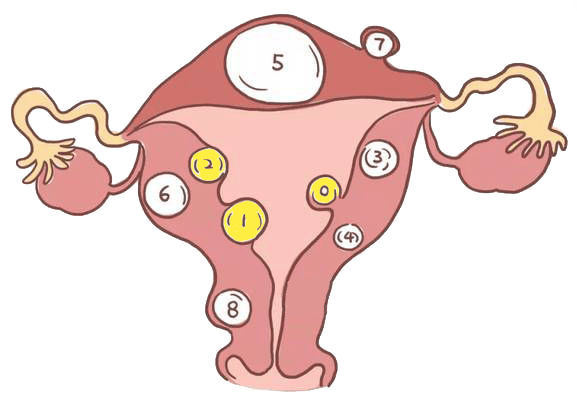When it comes to gynecologic uterine fibroids, everyone is very familiar. As one type of uterine fibroid, submucosal fibroids have a very important impact on female pregnancy and may cause female infertility.
The “past and present” of submucosal fibroids
It originates from the junction of the endometrium and the myometrium (submucosal layer) of the uterus, protruding into the uterine cavity. Since the junction of the uterine myometrium has a high level of estrogen and progesterone receptors, and it rhythmically contracts during different menstrual cycle stages to help sperm travel and embryos implant. At the same time, the junction is also an important site for placental attachment. Therefore, submucosal fibroids originating from the junction have a significant impact on conception. Moreover, they may compress the fallopian tubes, causing them to twist, or deform the uterine cavity, hindering the implantation of the fertilized egg, leading to infertility.
In addition, submucosal fibroids cover the endometrium, increasing its area and occupying space in the uterine cavity, affecting the flow of menstrual blood. This can cause abnormal contractions of the uterus, leading to dysmenorrhea, increased menstrual flow, irregular cycles, and causing discomfort to the patients.
As for the treatment of submucosal fibroids, from a clinical perspective, hysteroscopic resection of submucosal fibroids has irreplaceable advantages over other techniques. Especially when ultrasonography cannot accurately determine the size and number of fibroids, or when tiny endometrial lesions may be missed, hysteroscopy can enlarge and clearly observe the morphology and lesions of the uterine cavity, perform resection of submucosal fibroids and sampling of tiny lesions or removal of lesions under direct visualization, improving the hysteroscopic environment, and thus enhancing the chances of embryo implantation and effectively increasing the pregnancy rate.
Our gynecological hysteroscopy technology is advanced and highly favored by patients in the treatment of common and frequent gynecological diseases. Dr. Zhang Liang in the Gynecology Department has excellent skills, and he has successfully performed hysteroscopic resection of submucosal fibroids with a maximum diameter of 11 cm. Additionally, he has rich experience in complex hysteroscopic surgeries and is especially skilled in treating severe intrauterine adhesions, uterine septae, and other gynecological diseases with hysteroscopy. In the treatment of female infertility, Dr. Zhang’s outstanding skills and clinical experience have helped dozens of infertile patients successfully conceive and deliver healthy babies.
Editor: Ginny


